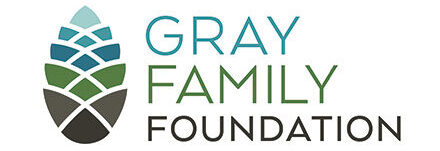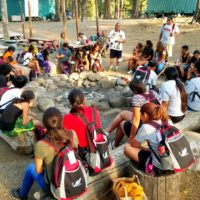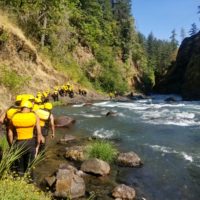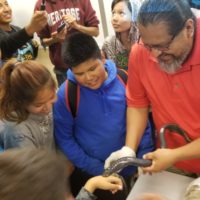Wearing matching life jackets, a group of tribal fifth- through seventh-graders splashed through the rapids of Washington’s White Salmon River, a tributary to the Columbia River in the Pacific Northwest.
For these students, members of the four Columbia River Treaty tribes, it’s more than just an adventure, it’s a chance to reconnect with their ancestral lands, their salmon-bearing streams—and with each other.
The rafting trip was one of the highlights of a recent Salmon Camp, an annual week away from home for about 20 youth from the Yakama, Umatilla, Warms Springs and Nez Perce tribes.
With support from the Gray Family Foundation, Salmon Camp, a program of the Columbia River Inter-Tribal Fish Commission, has been going strong since 2010. In 2018, they utilized the funding to increase the number of participants to 25 and added a sixth day of camp—which is free for participants.
Each year, the camp rotates locations between the tribal homelands within the Columbia River Basin. In 2018, Salmon Camp was held at the Yakama Nation’s Camp Chaparral site in Washington state.
The week-long camp applies the Science, Technology, Engineering and Math (STEM) fields to all aspects of the salmon life cycle, as well as integrating college preparation information. Tribal elders attend the whole week and help immerse the students in their ancestral traditions, and tribal biologists give hands-on training to the students on salmon restoration projects, shedding light on career opportunities in the sciences. The camp incorporates a community service component along with a traditional salmon feast. And of course, there’s always a little fun too—like rafting.
A couple of weeks after camp, the students have the opportunity to present posters about what they learned at Salmon Camp to their families and other community members.
Said one camp participant: “It gave me a chance to see what I want to be in the future.”



